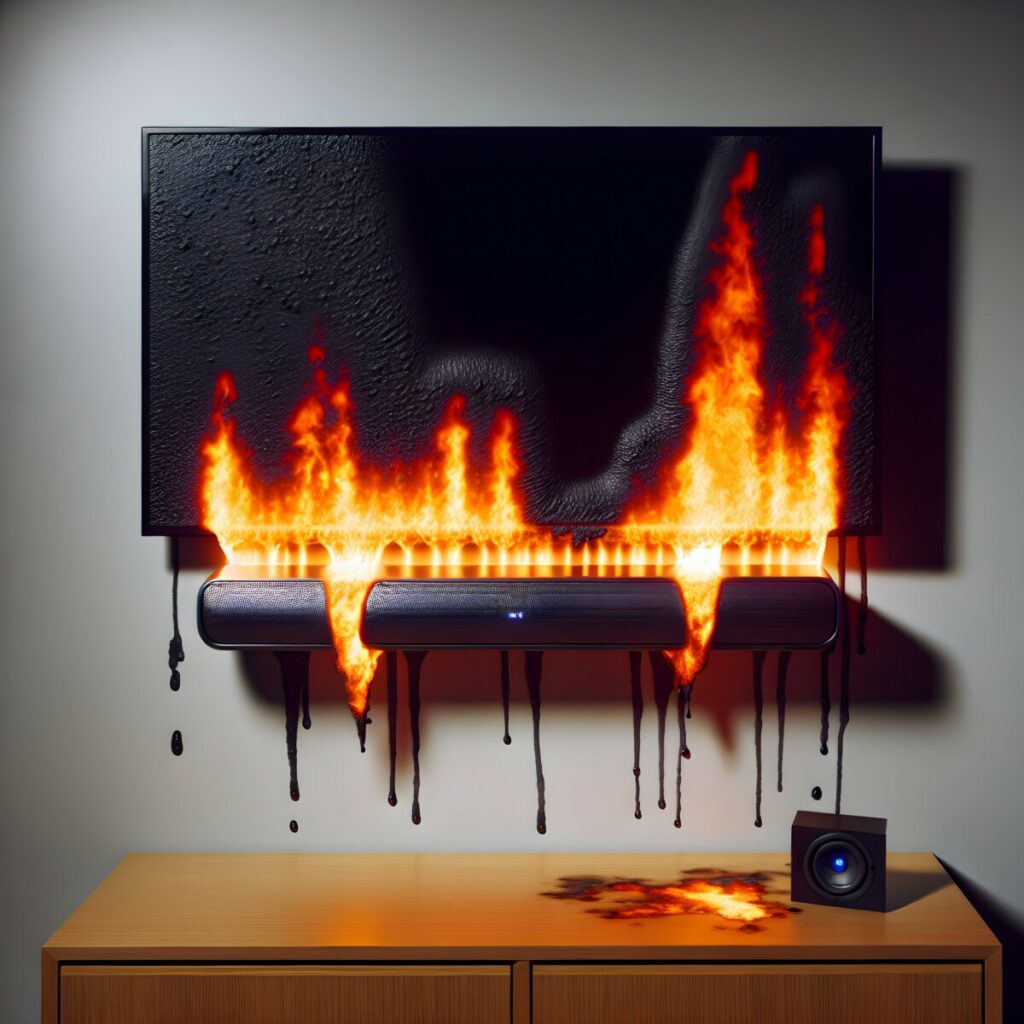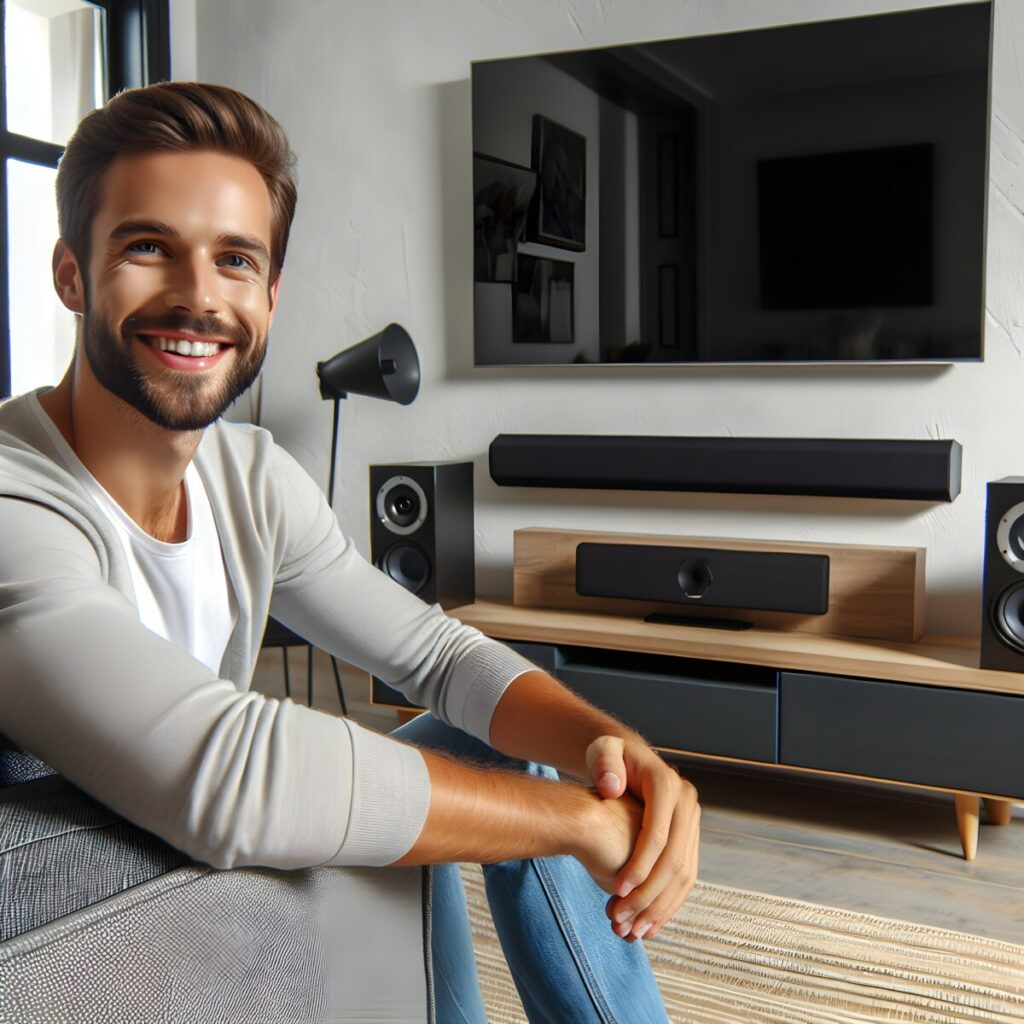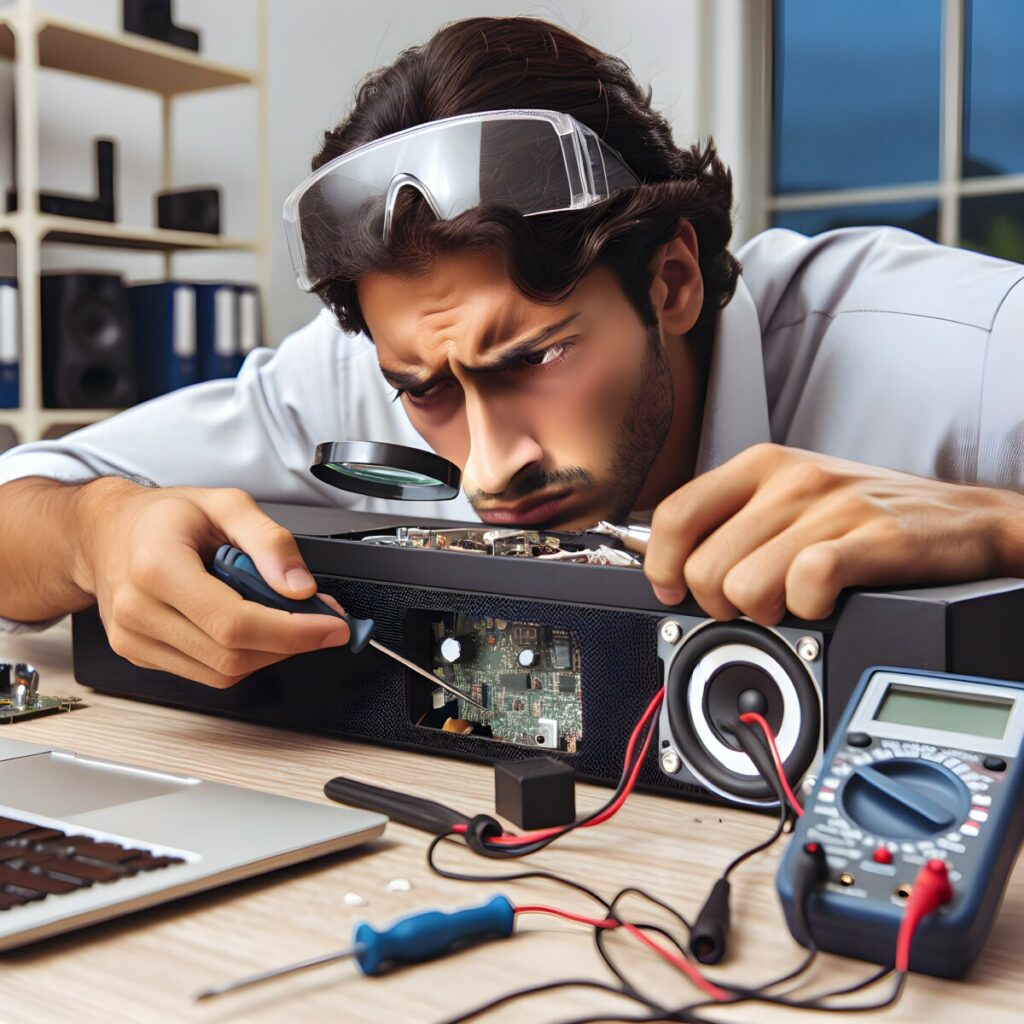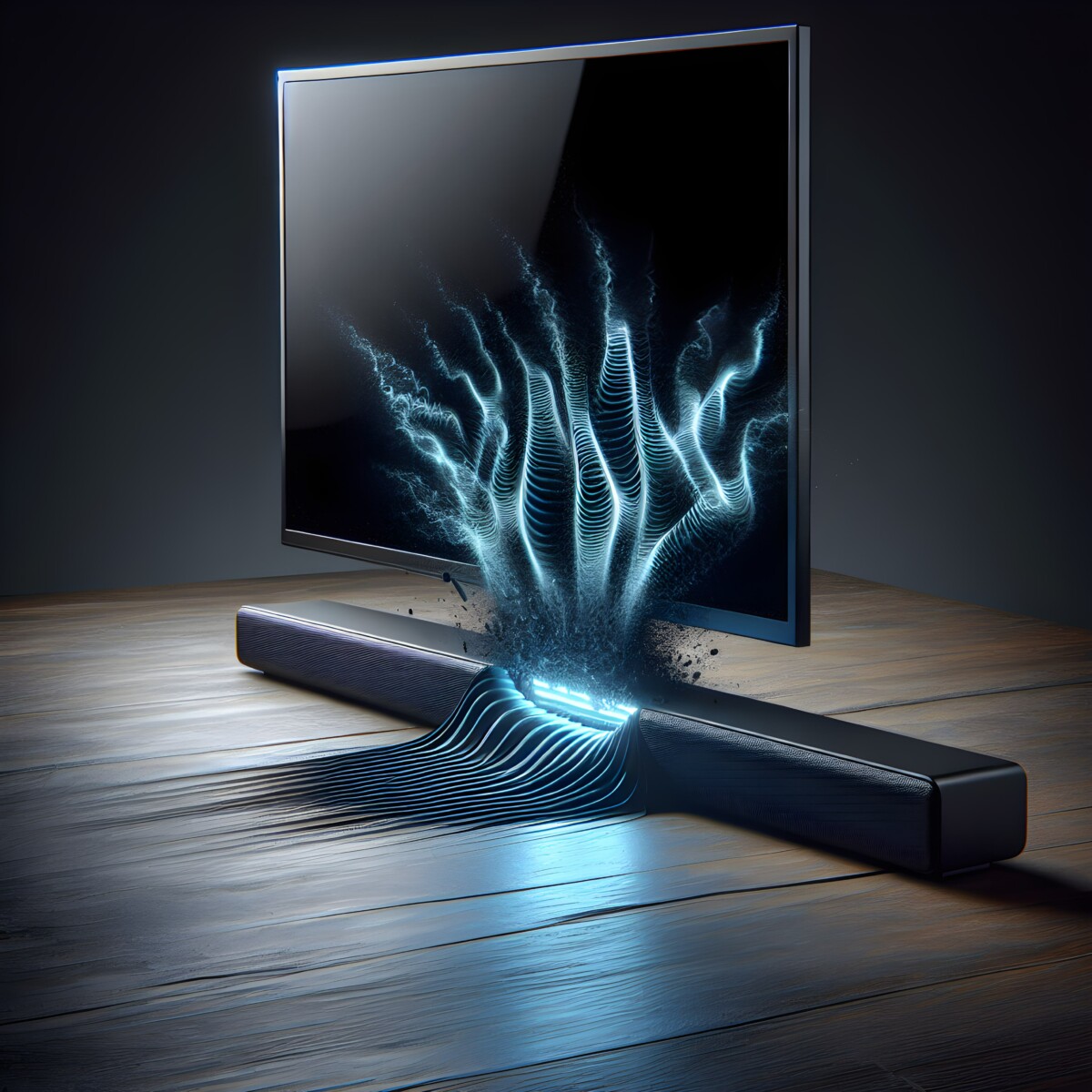As an Amazon Associate I earn from qualifying purchases
When considering the addition of a soundbar, it’s natural to wonder if it could potentially cause harm to your television.
The good news is that when you use a soundbar properly, it typically will not damage your TV.
Soundbars are designed to be companions to your television, improving the sound quality without interfering with the TV’s functions.
However, the way you set up and connect your soundbar does matter.
Ensuring that you’re using undamaged cables and correct installation methods helps prevent any electrical issues that could potentially affect your television.
It’s important to connect the soundbar to a surge protector (affiliate link) as well as have the proper HDMI cable.
This can go a long way in protecting your electronics.
While a soundbar itself isn’t likely to directly cause physical damage to a television, improper handling or setup could lead to problems.
For instance, placing a soundbar too close to the screen could risk obstructing ventilation ports or the infrared sensor for the remote control.
Proper placement can help maintain the integrity of both your soundbar and TV, ensuring that neither is adversely affected.
I will go into more detail regarding the most common ways a soundbar can damage a TV in the next section
Potential Damage to TV From a Soundbar

When integrating a soundbar with your TV setup, although it’s an unlikely occurrence, certain factors could potentially harm your television.
These factors range from mechanical to electronic influences, each explained in detail below.
Vibration/Physical Damage
Vibration from powerful soundbars can cause:
- Loose connections: Continuous vibrations may loosen internal connectors in the TV.
- Physical damage: Prolonged exposure to intense vibration can affect the physical integrity of some television components, potentially leading to structural damage.
Electrical/Connectivity Issues
Issues that may arise include:
- Short circuits: Incorrectly connecting a soundbar can cause electrical shorts that damage the TV’s electronics.
- Port damage: Frequent plugging and unplugging of cables can wear out TV ports, leading to connectivity issues.
Power Surges
Power surges can:
- Fry circuits: Surges through power lines can overload and fry the TV’s internal circuits.
- Corrupt software: Sudden spikes of electricity can corrupt the firmware or software that operates the TV.
Electromagnetic Interference
Soundbars with strong magnets could theoretically cause:
- Distorted image quality: Electromagnetic fields may interfere with the TV’s display, although modern TVs are well-shielded against such effects.
Heat Damage/Ventilation
Improper placement of a soundbar can:
- Obstruct ventilation: Blockage of the TV’s ventilation system can cause overheating.
- Heat accumulation: Excessive heat from a soundbar can affect sensitive components if placed too close to the TV without proper airflow.
Screen Obstruction
A soundbar placed directly in front of the TV might:
- Block IR sensors: This can interfere with remote control signals.
- Obscure part of the screen: It can block the view, especially if it is too tall or not correctly positioned.
Safeguarding Your TV From Soundbar Damage

To ensure your TV remains in prime condition, it’s crucial to consider the interaction between your TV and soundbar.
This includes strategic placement and volume management.
Proper Soundbar Mounting and Placement
- Avoid Direct Contact: Keep your soundbar from directly touching the TV to prevent any potential vibration damage. Use a soundbar mount (affiliate link) or put it on a tv stand.
- Magnetic Shielding: Modern TVs are not generally susceptible to magnetic interference, but it’s still wise to ensure that soundbars with powerful magnets are placed at a safe distance.
Maintain Safe Volume Levels
- Invest in the right soundbar: Pick a soundbar that does not have to be played at such high volumes to experience great sound. The Sonos Beam (affiliate link) is great for a well-balanced soundstage with optimal dialogue clarity.
- Refer to Manufacturer Guidelines: Consult your TV and soundbar user manuals for optimal volume settings.
- Regular Checks: Periodically inspect and adjust the volume to prevent any possible vibrational harm to your TV’s internal components.
Troubleshooting Common Issues

When addressing soundbar issues, it’s essential to consider signal interference, installation, and electrical connections, as these are common culprits that could lead to problems affecting your TV’s performance.
Addressing Signal Interference
Signal interference can cause audio delay or quality issues with your soundbar. Here’s how you can address it:
- Ensure there is no obstruction between your soundbar and its remote control. A good way to accomplish this is by placing your soundbar at the optimal distance from the tv.
- Check and distance wireless devices like routers that may cause interference with the soundbar’s signal.
Rectifying Mounting Problems
Incorrect soundbar installation could potentially affect your TV’s functionality. Consider these steps to avoid that:
- Confirm the soundbar’s weight is within the limits supported by the TV mount.
- Check that the soundbar ventilation is not obstructed by the TV or furniture.
Solving Electrical Connection Challenges
Problems with power sources and cables can also lead to soundbar and TV malfunctions:
- Examine all cables for damage and ensure they are firmly connected.
- Use surge protectors (affiliate link) to prevent electrical damage to your soundbar and TV from power spikes.
Frequently Asked Questions
Will speaker magnets affect an LCD TV?
Speaker magnets typically won’t affect LCD TVs. LCD screens are not affected by magnetic fields, unlike older CRT (cathode ray tube) TVs. However, it’s still advisable to keep large magnets away from electronic devices as a precaution. While rare, extremely strong magnets might potentially interfere with the electronics within the TV.
What can go wrong with a soundbar?
Several issues can occur with soundbars, including:
- Sound quality degradation due to damaged speakers or electronic components.
- Connectivity problems with the audio source, such as Bluetooth or HDMI connection issues.
- Power-related issues like failure to turn on, sudden power cuts, or problems with the power supply.
- Firmware/software glitches leading to operational issues or compatibility problems with other devices.
- Physical damage from mishandling or accidents, such as water damage or dropping the soundbar.
How many years should a soundbar last?
The lifespan of a soundbar can vary depending on factors like brand, build quality, usage patterns, and maintenance. On average, a well-maintained soundbar from a reputable brand can last anywhere from 5 to 10 years or even longer. However, electronic devices can fail prematurely due to various reasons, so it’s essential to follow manufacturer guidelines for usage and maintenance to maximize the lifespan of your soundbar. Regular cleaning, proper ventilation, and avoiding extreme temperatures can help prolong its life.


